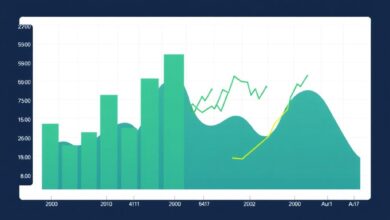The psychology of money – habits that grow wealth

Develop a consistent routine of saving and investing, as it lays the groundwork for future prosperity. Focus on allocating at least 20% of your income towards savings or investment vehicles. This practice not only builds a safety net but also fosters a long-term mindset that prioritizes growth over immediate gratification.
Analyze past financial choices to identify patterns in your decision-making. Reflecting on both successful and unsuccessful ventures can illuminate behavioral tendencies that either contribute to or hinder your economic progress. Embrace data-driven insights; they serve as a compass for future actions.
Cultivate an abundance mentality, which promotes optimism in wealth accumulation. Surround yourself with individuals who share similar aspirations, as their behaviors can influence your own. Engage in continuous learning about financial strategies to enhance your knowledge base and refine your approach.
Finally, practice mindfulness in spending habits. Before making purchases, ask yourself if the item aligns with your financial goals. This conscious decision-making process not only curbs unnecessary expenditures but also aligns daily actions with broader objectives.
Understanding Money Mindset
To cultivate a winning attitude towards finances, focus on reshaping your beliefs about wealth. This mindset can significantly impact your success in financial endeavors.
- Reframe Thoughts: Identify negative beliefs that limit your potential. Replace them with affirmations that promote abundance and opportunity.
- Behavioral Patterns: Monitor daily choices regarding spending and saving. Small changes can lead to significant results over time.
- Set Clear Goals: Define specific financial objectives. Write them down and review them regularly to maintain motivation and direction.
- Educate Yourself: Invest time in learning about investment strategies, market trends, and personal finance management. Knowledge empowers informed decisions.
A positive outlook on finances influences behavior, which ultimately shapes the path toward prosperity. Embrace habits that align with your aspirations and foster a sense of control over your financial future.
- Create a Budget: Track income and expenses meticulously to identify areas for improvement.
- Build an Emergency Fund: Aim for three to six months’ worth of living expenses saved to cushion against unforeseen circumstances.
- Invest Regularly: Establish a habit of contributing to savings or investment accounts consistently, regardless of market conditions.
Your decisions today lay the groundwork for tomorrow’s financial landscape. Cultivating an empowering perspective is key to achieving lasting success in monetary affairs.
Identifying Limiting Beliefs
To reshape your financial mindset, pinpoint beliefs that hinder progress. Begin by journaling thoughts about finances; this practice reveals subconscious patterns impacting behavior.
Challenge negative assumptions like “I’ll never be wealthy” or “rich people are greedy.” Replace these with affirmations such as “I can achieve financial success” and “wealth enables positive change.” Visualization techniques can further reinforce these new beliefs.
Engage in discussions with individuals who exhibit prosperous behaviors. Their perspectives may expose self-imposed barriers you weren’t aware of. Observe how they approach opportunities and setbacks; adapt their strategies to reshape your own outlook.
Set specific, measurable goals. For instance, instead of a vague aim to save money, target a precise amount to save monthly. This clarity fosters accountability and encourages constructive financial actions.
Regularly evaluate your spending patterns. Identify triggers leading to impulsive purchases; understanding these can help mitigate them in the future. Cultivating awareness around these habits is pivotal for long-term change.
Seek professional advice if necessary. A financial coach can provide personalized insights tailored to overcome limiting beliefs, guiding you towards healthier attitudes and behaviors regarding wealth accumulation.
Creating Sustainable Wealth Habits
Establish a routine of tracking your expenses daily. This behavior fosters awareness of spending patterns and promotes informed decisions. Utilize budgeting tools or apps to visualize your financial flow, making adjustments as necessary.
Commit to automatic savings by setting up transfers to a dedicated account each payday. This approach minimizes temptation and reinforces a mindset oriented towards future success, allowing accumulation without constant deliberation.
Engage in continuous learning about investment opportunities. Subscribe to financial podcasts or read books that challenge existing notions and expand your understanding. A proactive attitude toward knowledge can significantly influence decision-making processes.
Join a community focused on financial growth. Surrounding yourself with individuals who share similar ambitions enhances motivation and accountability, creating an environment conducive to adopting positive behaviors.
Practice gratitude for what you have while setting clear goals for the future. Balancing appreciation with ambition cultivates a healthy mindset, ensuring that aspirations align with reality rather than leading to discouragement.
Regularly review and adjust your financial goals based on changing circumstances. Flexibility in approach allows for adaptation and sustained commitment, preventing stagnation in wealth accumulation efforts.
Seek mentorship from those who have achieved desired levels of success. Learning from their experiences can provide insights into effective strategies and reinforce constructive decision-making habits.
Prioritize long-term investments over short-term gains. A focus on sustainable growth reflects a mature mindset, recognizing that gradual progress often leads to more substantial results over time.
Create specific rituals around money management, such as monthly reviews or quarterly goal-setting sessions. Consistency in these practices solidifies beneficial behaviors and strengthens resolve against impulsive choices.
Emotional Impact of Spending
Recognize your emotional triggers before making any purchase. This awareness leads to better financial decisions, reducing impulsive buying driven by temporary feelings. Create a personal checklist of emotions that commonly influence your spending, such as stress or excitement.
Track your spending patterns. Use apps or journals to record purchases alongside the emotions felt at the time. Analyzing this data will reveal correlations between moods and financial choices, helping you understand how emotional states affect your financial habits.
Implement a 24-hour rule for non-essential purchases. Waiting a day can clarify whether the urge is rooted in genuine desire or fleeting emotion. This practice enables more deliberate decision-making, enhancing your mindset towards financial success.
Set specific goals. Define clear objectives for saving and investing that resonate with your values. When you connect spending with long-term aspirations, it becomes easier to resist temptations that detract from achieving those goals.
Acknowledge the role of social influences on spending behavior. Surround yourself with individuals who share similar aspirations regarding finances; their positive habits can inspire and reinforce your own commitment to sustainable practices.
Practice gratitude regularly. By recognizing what you already possess, you’ll cultivate contentment and reduce the need for external validation through purchases. This shift in perspective can significantly alter your approach to financial management.
Consider alternatives to immediate gratification. Engage in activities that fulfill emotional needs without impacting finances, such as exercise or creative hobbies. Finding joy outside of consumerism strengthens resilience against impulsive behavior.
Regularly assess your progress towards established goals and adjust strategies as necessary. Celebrate achievements, no matter how small, reinforcing positive actions and nurturing a constructive mindset towards future decisions.
Strategies for Financial Resilience
Establish a robust emergency fund covering at least three to six months of living expenses. This cushion empowers individuals to navigate unforeseen circumstances without derailing long-term goals.
Regularly review and adjust spending patterns. Create a monthly budget that aligns with personal priorities, ensuring that unnecessary expenditures are minimized. Use budgeting apps or spreadsheets for tracking progress and making informed decisions.
Diversify investment portfolios to mitigate risks. Allocate funds across various asset classes such as stocks, bonds, real estate, and alternative investments. This approach enhances potential returns while reducing volatility in the overall portfolio.
Cultivate a growth-oriented mindset focused on continuous learning about financial management. Engage with books, courses, or seminars that enhance understanding of investment strategies and market dynamics.
Establish automatic savings and investments. Automating contributions ensures consistency in saving habits, reinforcing commitment to financial objectives without requiring constant oversight.
Engage in regular financial check-ups. Set aside time quarterly or biannually to assess progress towards goals, readjust strategies if necessary, and maintain alignment with evolving personal aspirations.
Build a network of financially savvy peers for support and accountability. Sharing insights fosters an environment conducive to motivation and improved decision-making regarding monetary matters.







